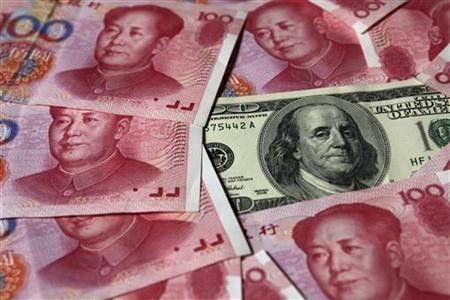US Tops China As Most Favored Nation For Foreign Direct Investment
The United States is once again No.1 in terms of foreign direct investment sentiment after a 12-year hiatus, according to a survey of top executives, displacing China, which is experiencing an economic slowdown and making a progress toward sustainable economic growth.
The 2013 Foreign Direct Investment Confidence Index from global consulting firm A.T. Kearney surveyed more than 300 executives from 28 countries. The U.S. jumped from fourth place in 2012 to the top spot this year. It has not held the top spot since 2001.

The results show that executives believe U.S. workers are becoming more competitive. It also showed that those executives believe that, until recently, the weakness in the U.S. dollar helped improve the the U.S.' exports profile.
In addition, the American housing market is recovering, and there has been a surge in the production of unconventional oil and gas.
More than half of the survey's respondents believe the global economy will recover from the financial crisis by 2014 (26 percent) or 2015 (28 percent) -- a shift in sentiment from 2010, when 42 percent believed the recovery would occur in just one year.
"Investors are demonstrating more mature judgment about what the risks are and what the expected returns will be and how long it will take the global economy to recover," Paul Laudicina, chairman emeritus of A.T. Kearney, told Reuters in a telephone interview.
The FDI Confidence Index ranks countries on how political, economic and regulatory changes will affect foreign direct investment.
The United States has been the biggest recipient of foreign investment inflows for the past six years, according to the survey. The respondents were optimistic about the U.S. economy -- 63 percent expect some economic growth, compared to 62 percent who believe Europe may have no growth and return to recession over the next three years.
China now occupies the second spot after the U.S. Factors behind the drop in ranking include a doubling of labor costs since 2007, rising transportation costs and the appreciation of the renminbi, which made the country less competitive against other low-cost alternatives, such as Mexico.
For the past 30 years, China concentrated on becoming a manufacturing powerhouse, but now, the country is trying to create a more consumer-driven economy.
Other trends include equalization in perceptions of risk between emerging and developed markets, the survey showed, in nearly all areas save for politics.
"In area after area, from macroeconomic volatility and consumer demand to regulatory barriers and taxation, investors say that developing markets have roughly the same level of risk as developed markets," the survey said.
Brazil, Canada and India rounded out the top five on the list.
© Copyright IBTimes 2024. All rights reserved.





















